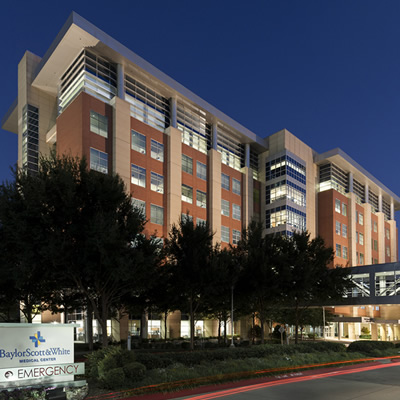What is genetic counseling?
Genetic counseling is an effective way to get the information and support you need on genetic conditions that might affect you or your family. After learning about your personal and family health history, a genetic counselor can help you better understand your or a family member’s risk of having a genetic condition and then help you decide if genetic testing is right for you.
Genetic counselors are experts who help people understand changes in their genes and can focus on different areas like pregnancy, metabolic disorders, processing of medications in the body, cardiovascular conditions or cancer. Some also work in other specialties, such as mental health.
When is genetic counseling recommended?
Your doctor may suggest genetic counseling based on your health history or your family’s health history. Genetic counselors are there to guide you through your health journey, helping you understand your family history, risks, and options for screening and treatment tailored to you.
There are certain times in your life when you might be referred for genetic counseling.
Planning for pregnancy
Genetic counseling before pregnancy can help you understand any factors that might affect your baby’s health or your ability to get pregnant. These can include:
- Genetic conditions in your family or your partner's family
- History of infertility, multiple miscarriages or stillbirth
- A past pregnancy or child affected by a birth defect or genetic condition
- Infertility treatment options
During pregnancy
Genetic counseling during pregnancy can help explain certain tests, any problems that are found or conditions that might affect your baby’s health. These can include:
- History of infertility, multiple miscarriages or stillbirth
- A past pregnancy or child with a birth defect or genetic condition
- Abnormal test results, like a blood test, ultrasound, chorionic villus sampling (CVS) or amniocentesis
- Infections or exposures during pregnancy, like cytomegalovirus (CMV), medicines, drugs, chemicals or X-rays
- Recommended genetic screening for everyone, including conditions like cystic fibrosis, sickle cell disease or any family genetic conditions
Your child’s health
Genetic counseling can help if, during a newborn screening, your child shows signs of possible genetic disorders, such as:
- Birth defects
- Autism spectrum disorder or other developmental delays
- Vision or hearing problems
- Metabolic disorders such as phenylketonuria (PKU)
Hereditary cancer
Genetic counseling may be helpful if you or a family member has a history of cancer with certain patterns or traits, including:
- Cancer diagnoses before age 50
- Two or more primary cancers, or cancer affecting organs that are present on both sides of the body
- Multiple relatives across generations with the same type of cancer
- Rare cancers, such as ovarian cancer, male breast cancer, sarcoma, medullary thyroid cancer, diffuse gastric cancer, adrenal gland cancer, pheochromocytoma, paraganglioma, Wilms tumor or retinoblastoma—especially if diagnosed at a young age
- A family member who tested positive for a cancer-related gene (such as BRCA1 or BRCA2)
- Ashkenazi Jewish ancestry
Specific considerations for breast and ovarian cancer include:
- Breast cancer diagnoses before age 50
- Ovarian cancer at any age
- Both breast and ovarian cancer at any age
- Two or more separate breast cancers at any age
- Family history of multiple women in different generations with breast or ovarian cancer, especially if they meet any of the above traits
- A family member with a positive BRCA1 or BRCA2 test
- Male breast cancer at any age
- Ashkenazi Jewish ancestry with a family history of breast or ovarian cancer
How to prepare for genetic counseling
Just like any unfamiliar situation, knowing what to expect from your genetic counseling session ahead of time can provide you with peace of mind. Before you get genetic counseling, learn as much as possible about the process and your family’s medical history.
Make a list of questions, so you can focus your conversation on your concerns. If you have medical records relating to your concerns, provide them to your genetic counselor in advance of your visit. You may want to gather information about:
- Previous medical diagnoses
- Parts of the body that were affected
- Your age at diagnosis
It’s also a good idea to contact your health insurance carrier before your session to find out if or how much of your genetic counseling or testing is covered. If not, your counselor may be able to work with you and your insurance provider to clarify the need for testing and help you understand other options.
What to expect during a genetic counseling session
Genetic counseling sessions typically take between 1 to 2 hours. During the session, your counselor will review your medical and family history to see how it might affect you or your children. They’ll create a family tree showing who in your family has had certain conditions, when they were diagnosed and if they’re still alive.
They’ll explain the benefits and risks of genetic testing, help you choose the right test and explain laws that protect your genetic privacy. Sometimes, gaining knowledge of your genetic risks can be overwhelming, but counselors can help you to understand and cope with the emotional aspects of genetic testing and the information gained from it.
Afterward, your counselor will share your risk assessment and provide information about DNA testing options. If you have testing done, it will take a couple of weeks for the results to be returned. Once the results are received, your genetic counselor will provide a summary of your results and explain what they mean for your health. Your counselor can help you make decisions about your health, including whether you need more tests or treatments, and may also refer you to a specialist or a support group.
Find a genetic counseling location near you
We help you get care at a location that fits your needs. We offer several locations for your care, including genetic counseling in North and Central Texas.

Baylor Scott & White All Saints Medical Center - Fort Worth
1400 8th Ave , Fort Worth, TX, 76104

Baylor Scott & White Medical Center - Plano
4700 Alliance Blvd , Plano, TX, 75093

Baylor Scott & White Medical Center - Temple
2401 S 31st St , Temple, TX, 76508

Baylor Scott & White The Heart Hospital Genetics Center - Plano
4716 Alliance Blvd Pavilion II, Ste 350, Plano, TX, 75093


